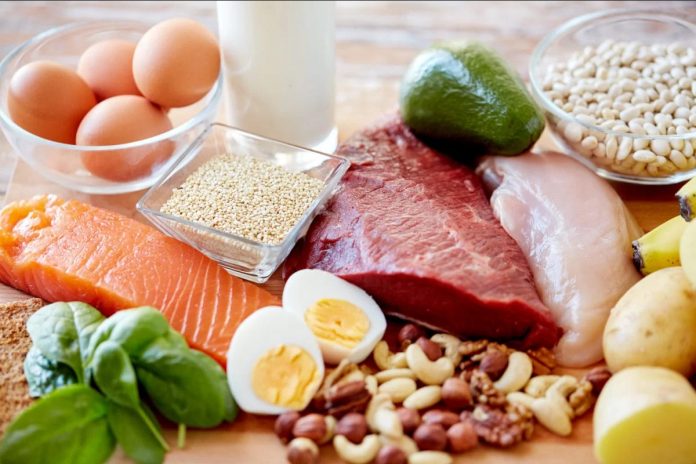Commonly known as just vitamins and minerals, micronutrients are just as important for your health as macronutrients are. You may need comparatively smaller amounts of these nutrients, but their inclusion is vital because, without vitamins, minerals, phytonutrients and antioxidants, your entire body is unlikely to function properly.
What’s more, the major disease-causing nutritional deficiencies in the world occur due to insufficient intake of these micronutrients. Usually, consuming sources of macronutrients provides enough micronutrients to your diet too.
The following are some micronutrients your body needs.
A) Water-soluble Vitamins
Vitamin B and vitamin C are water-soluble vitamins. Apart from vitamin B12, all other water-soluble vitamins are not stored in the body. It gets flushed out through the urine. This is the reason why you need to regularly replenish these vitamins by regularly consuming whole grains, eggs, green leafy vegetables like spinach and capsicum, fish, lean meat and citrus fruits. The main function of water-soluble vitamins is to produce energy, prevent cell damage, reduce metabolic stress and create red blood cells.
B) Fat-soluble Vitamins
Unlike water-soluble vitamins, fat-soluble vitamins only dissolve in fat and are stored in your liver and fatty tissues for future use. Fat-soluble vitamins include vitamin A, vitamin D, vitamin E and vitamin K. These vitamins play a huge role in strengthening the immune system, providing antioxidants to prevent inflammation and free radical damage, improve your vision and support blood clotting. Fat soluble vitamins are present in green leafy vegetables, almonds, sweet potatoes, milk and soybeans.
C) Microminerals
Microminerals are calcium, phosphorus, magnesium, sodium and potassium. These microminerals are present in food sources like milk and dairy products, green leafy vegetables, black beans, lentils, bananas and fish varieties like salmon. These microminerals help in a number of bodily functions like controlling your blood pressure levels, improving muscle strength, and maintaining bone health.
D) Trace Minerals
Trace minerals include iron, manganese, copper, zinc and selenium. They are vital for many functions of your body including nervous system support, healing wounds, defending cells from oxidative stress and supplying oxygen to the muscles.
E) Phytonutrients and Antioxidants
The other name of Phytonutrients is phytochemicals. They are natural compounds present in plants. Consuming phytonutrients, many of which have antioxidant properties, can improve your health in many ways. Phytonutrients like carotenoids, flavonoids, curcumin and capsaicin are present in common plant foods like fruits, vegetables, turmeric and even chillies. Antioxidants, which are similar to but not the same as phytonutrients. They are also present in green tea, cinnamon and most herbs.

























